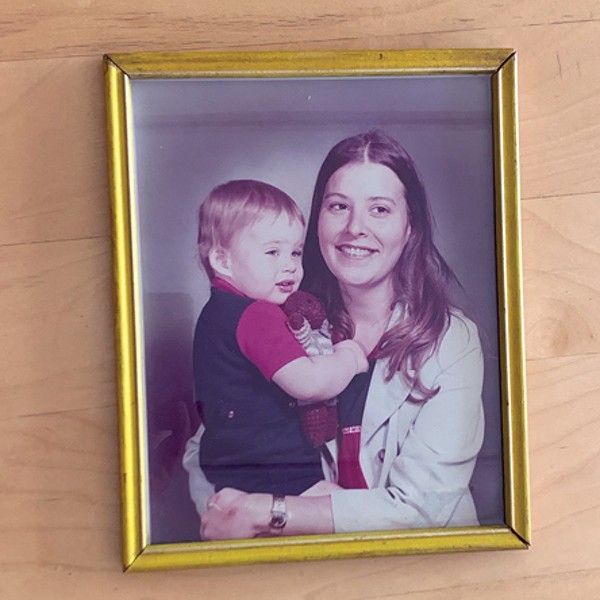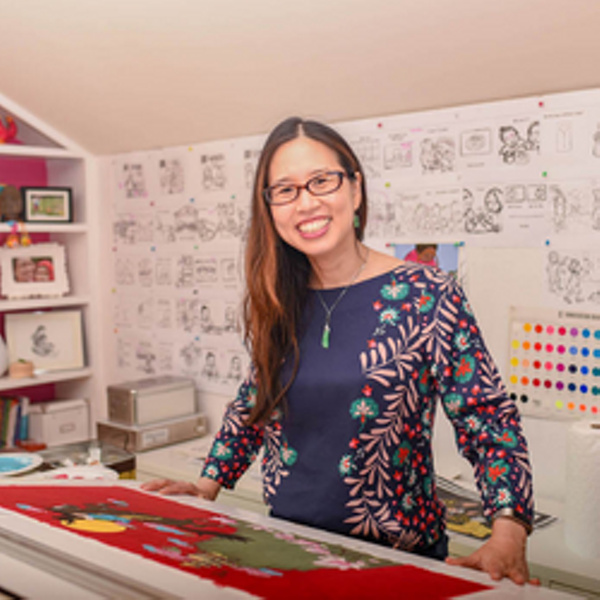As the well-raised daughter of a parenting expert, Joanna Faber felt confident about her own parenting skills—until she had kids. Then she decided to go incognito among friends about the fact that her mother, Adele Faber, co authored the classic best sellers Siblings without Rivalry and How to Talk So Kids Will Listen & Listen So Kids Will Talk, among others. Upon discovery of the truth, a friend invited Joanna Faber to speak about her mother's work, and Faber felt the pressure of the "parenting expert" label. However, as the talk drew nearer, Faber realized that she didn't have to be a perfect parent; she could just share the skills she used every day to parent her three boys. That's when she began to walk in her mother's footsteps.
Faber has contributed heavily to her mother's award-winning book, How to Talk So Kids Can Learn, drawing upon her experience as a bilingual special education teacher in a New York City public school. Her own book, How to Talk So LITTLE Kids Will Listen, builds upon her mother's work. Faber lectures and hosts workshops on parenting and education around her home in the Hudson Valley, as well as across the country.
I recently caught up with Faber to get the inside scoop on what it takes to create an intentional, loving, and disciplined family culture when there are little kids around.
How did the experience of growing up with a parenting expert mom affect you?
It's pretty wonderful to grow up in a family where feelings are respected, emotions are accepted. If we had a conflict, my parents would turn to problem solving instead of punishment. To me, that was the norm. My mother's mentor, Dr. Haim Ginott, used to say to the parents he taught, "For you, this will always be a second language. You will always speak with an accent. But for your children, it will be their native tongue.
We deliberately wanted our book's title to echo my mother's work because that's our foundation, and we hope that we've built even more on that with the chapter on kids who are wired differently, and by having chapters on specific challenges. We find that people need specific examples and stories. They may know the theory: accept feelings, give choices, encourage autonomy. But it's hard to translate theory into action when you're under pressure. You've got to get a kid into the car seat, get those shoes on, stop him from pinching the baby.
There's a wonderful tone in your book that's both humorous and relatable. You write, "There's a certain 24-hours-a-day relentlessness to caring for young children that makes it hard to think straight." And you point out that parents have the opportunity to relive certain scenarios—often several hundred times.
Sure. There's always the second chance, and the third and the fourth and the fifth. Parents say, "I blew it! I blew it!" You don't have to worry. Kids are going to do it again. They're going to pull the dog's tail again. They're going to spill the milk again. You'll have another chance.
And we can practice our reactions to things. I find that reassuring because, as parents, we often judge ourselves harshly.
We do. We hold ourselves to a high standard, and many of the parenting books that I've read also hold us to a high standard—that we should always be calm; we should never be angry, we should never show frustration or irritation. It's not human to never be irritated, frustrated, and angry. We don't need to feel bad about ourselves on top of everything that's involved in raising these young humans. If you're relating to your child with playfulness and choices, there's a general good feeling and strong connection between the two of you. If you get frustrated and yell, it'll be okay. All those positive interactions make for a solid relationship that can withstand a little bad temper.
One of the themes of your book is the idea of cultivating a relationship with our children. As parents, we sometimes treat that relationship more like ownership when we discipline our children.
The more kids feel connected, the more kids feel liked, the more they feel like part of the solution rather than part of the problem, the more cooperative in general they're going to feel. I had someone on the radio a couple of weeks ago suggest to me that these skills were just manipulating children into being cooperative. In fact, what we're doing by accepting feelings, being playful, giving choices, putting the child in charge is, we're creating a connection; we're creating a cooperative spirit.

















